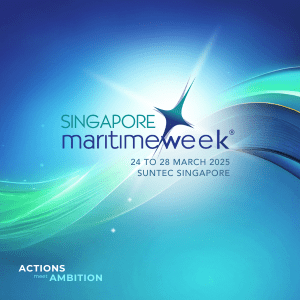More than the cost of logistics what actually matters is the timely movement of cargo from the factory premises till it boards the desired ship, avers Parimal Das, Head Marketing of TDT Copper – one of the largest copper exporters in India
Logistics becomes a critical element in the costing of a product, particularly when it comes to the movement of high value cargo. Parimal Das, Head Marketing, TDT Copper Ltd, was acutely conscious of this fact whose consignments were extremely of high value.
India is not self-sufficient in the production of copper ore. Copper is imported in the form of copper ore & concentrates, refined copper, copper & alloys, brass & bronze, scrap, worked (bars, rods and plates), etc. Consumption in India is set to expand by more than 15 per cent. Demand will continue rising, reaching almost 2 million tons a year in the next decade,
TDT Copper Ltd is the largest stand-alone CCCR Plant (Continuous Cast Copper Rods) in India with annual capacity of 79,200MT. They import copper in the form of cathodes which is the raw material for many downstream products which are used in telecommunications, power cables, building wires, railways and metro railways, transformers and automotive industry. After processing, the products are either exported or sold in the domestic market. Their export amount to 200 teus per month and import about 1200 teus per month.
For Das time is of essence. He can ill afford to wait for empty containers to load his cargo. He rues over the fact that there is substantial fragmentation between various stakeholders. To get an empty from a shipping line is by no means easy he claimed. The delays, more often than not, are inevitable. “It was not under a single umbrella,” he claimed. There should be a single agency which looks into the availability of containers, transports it on time and makes it available to the exporter for use. “It happens in other countries, why not here?” he asked. There was no such agency here. Often he finds that the empty containers were not available at the required terminal.
Further he states that once the containers are on the move, there are still delays at various stages in the intermodal movement. The transit time for his containers from his factory premises to loading onto the vessel ranges from seven to 21 days.
Many of the maritime conference dwell on the aspect of diminishing rail movement with roadways getting a major share. Das on the other hand is not particular on either mode of movement. Cost was not a major factor. His only concern was delay – time which largely overrode his concern for the differential in transportation costs. He said that on an average the cost of his shipment was about 1.5 crores. The daily interest accrued on the shipment was about `3000, which made the time factor very critical.
He also bemoans the fact that some shipping lines have stringent and intransigent rules which mitigates against smooth movement of cargo. The lines needed to step in to ensure that the movement of the cargo was smooth.
Documentation he feels requires improvement. The number of documents required for export or import are still far too many, the facility of single window clearance notwithstanding.
Further, he claimed that genuine errors such as spelling mistakes, come under intense scrutiny which delays the whole clearance process interminably. Multiple documents are involved and these come from various agencies which paves way for errors to creep in. Elementary errors that have crept in should be disposed off promptly. He concedes that errors should be avoided, strictness should be there, but the redressal system should be prompt and not be punitive in nature.
Das says there is little percentage in claiming that we have reduced time from 60 days to 50 days. More importantly we need to benchmark with countries. Where do we stand vis-a-vis them? Those parameters would give us a fairer idea of where we stand.
When he gets an import shipment from japan, he is notified of the status ab initio, in every stage of the shipment, regardless of any glitch in the movement. They too have multiple agencies. If they could function so synchronously, why couldn’t we, he asked? However he hastens to add that he was not a pessimist and things were not too bad in the Indian context. At least, he adds with a wry smile, the officials were willing to meet and talk and listen to you these days which itself was very positive.








